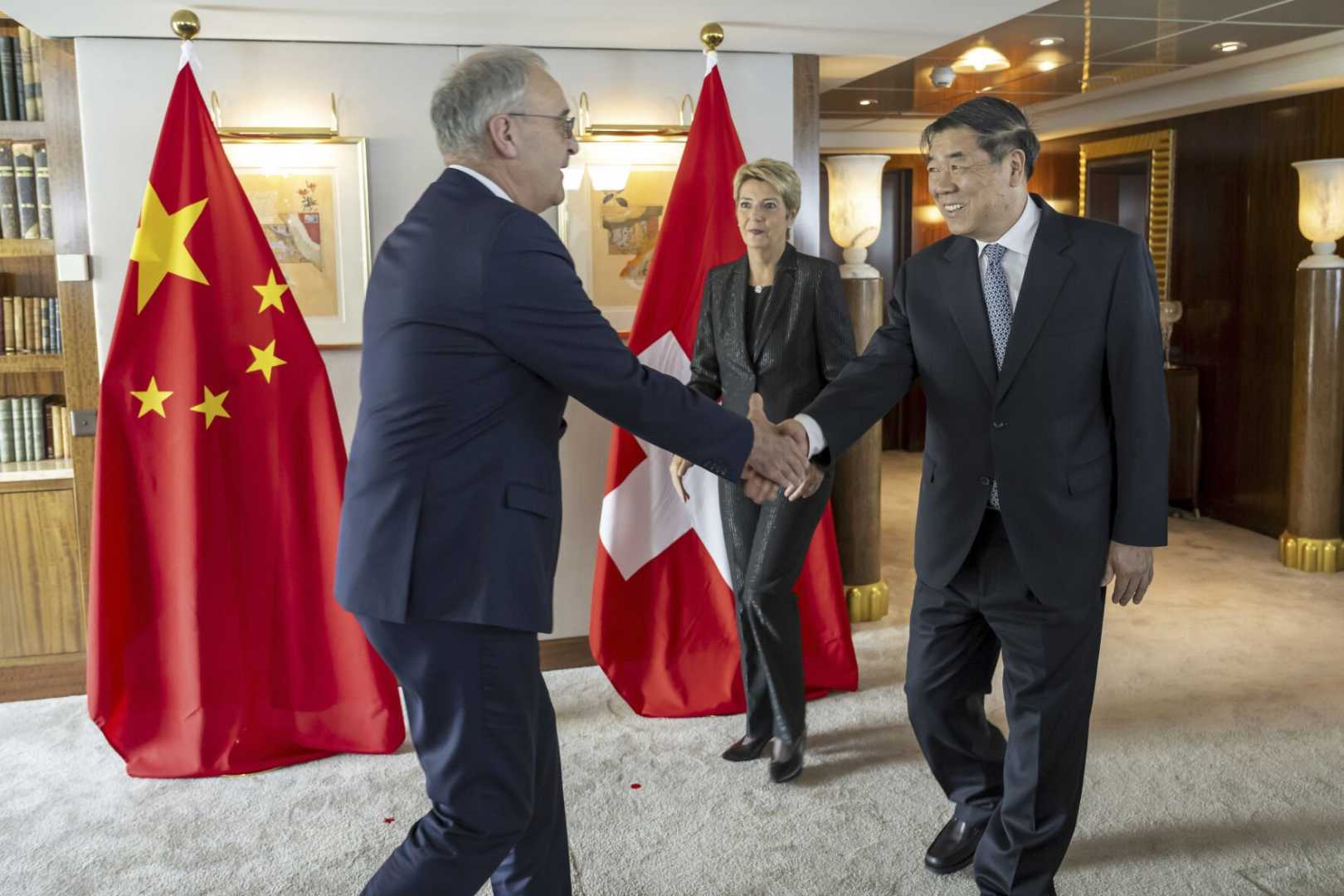Business
U.S.-China Trade Talks in Geneva Amidst Tariff Tensions

GENEVA, Switzerland — Top negotiators from the United States and China are set to meet this Saturday to address ongoing trade tensions between the two countries. These discussions follow President Donald Trump‘s recent implementation of steep tariffs, intensifying the trade dispute affecting global supply chains and economic growth.
The meeting marks the first in-person dialogue between senior officials from both nations since Trump imposed a historic 145% tariff on a significant portion of Chinese imports last month. The talks aim to create a pathway out of a trade war that has unsettled various industries, from electronics to agriculture.
Despite the significance of the upcoming discussions, analysts express skepticism regarding the likelihood of a breakthrough. “The U.S. has not been particularly interested in what anybody else wants,” said Mary Lovely, a senior fellow at the Peterson Institute for International Economics. Many experts believe that both sides are still balancing the desire to appear tough against the risks of further straining global economic conditions.
U.S. Treasury Secretary Scott Bessent, leading the American delegation, acknowledged the focused agenda but stated that the primary goal is de-escalation rather than forming a comprehensive trade deal. Bessent told Fox News, “My sense is that this will be about de-escalation, not about the big trade deal.”
Meanwhile, Chinese officials are approaching the negotiations with caution. China’s Vice Premier He Lifeng will lead the discussions and seeks to avoid making concessions without clear movement from the U.S. Foreign Ministry spokesman Lin Jian emphasized, “To pressure or coerce China in whatever way simply does not work.”
In the lead-up to these talks, diplomatic outreach between the nations has seen some improvement, but deep-seated mistrust remains prevalent. Trump’s recent remarks framed the decline in shipments from China as a positive outcome, stating, “We were losing a trillion dollars a year, now we’re not losing anything.”
Analysts suggest that the best outcome from the Geneva talks may be a temporary pause in tariff escalations or an agreement to continue negotiations. However, significant obstacles—such as the U.S. demands for market access and China’s insistence on maintaining its economic model—are likely to impede a quick resolution.
As these discussions unfold, Trump has voiced intentions to hold China accountable for its trade practices while pushing for greater access to the Chinese market. Nonetheless, experts assert that China retains leverage in negotiations, particularly given its established trade relations outside the U.S.
Ultimately, the Geneva talks represent a critical moment for both nations to re-evaluate their approaches amid escalating economic pressures. As the timeframe for resolution is tested, both sides seem to be aware of the high costs of a continued impasse.












